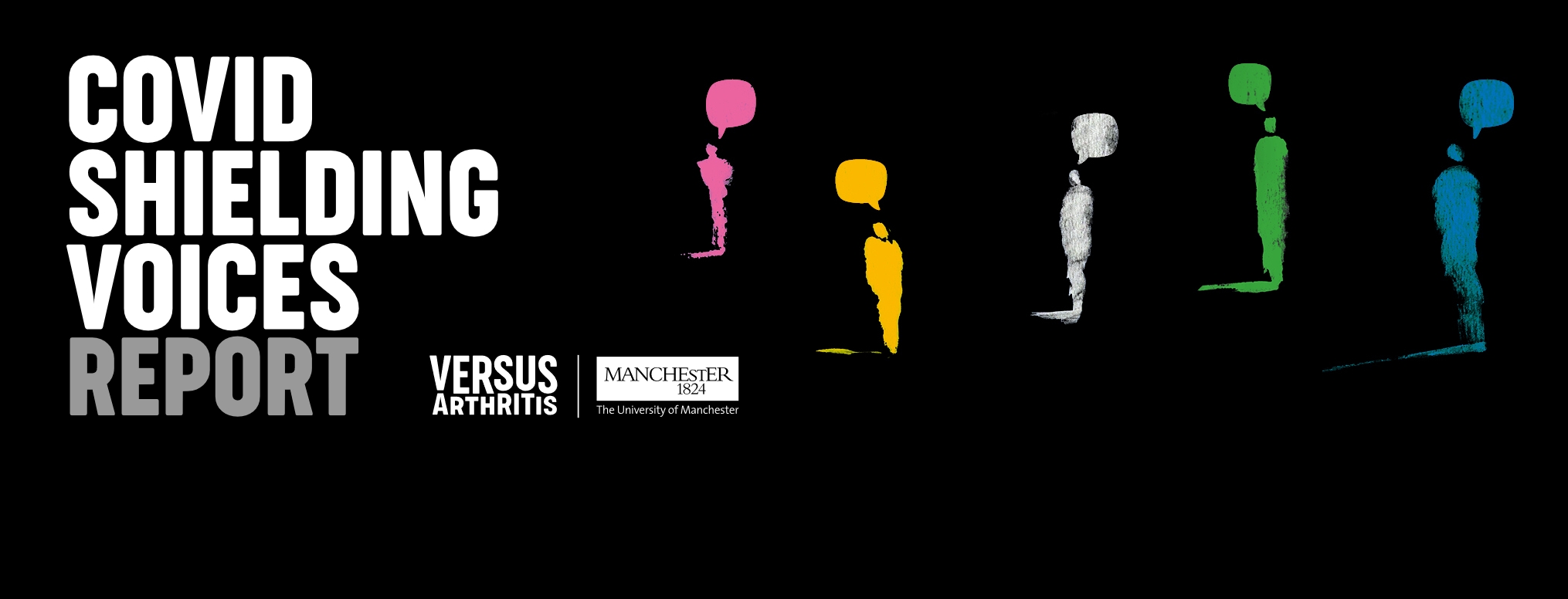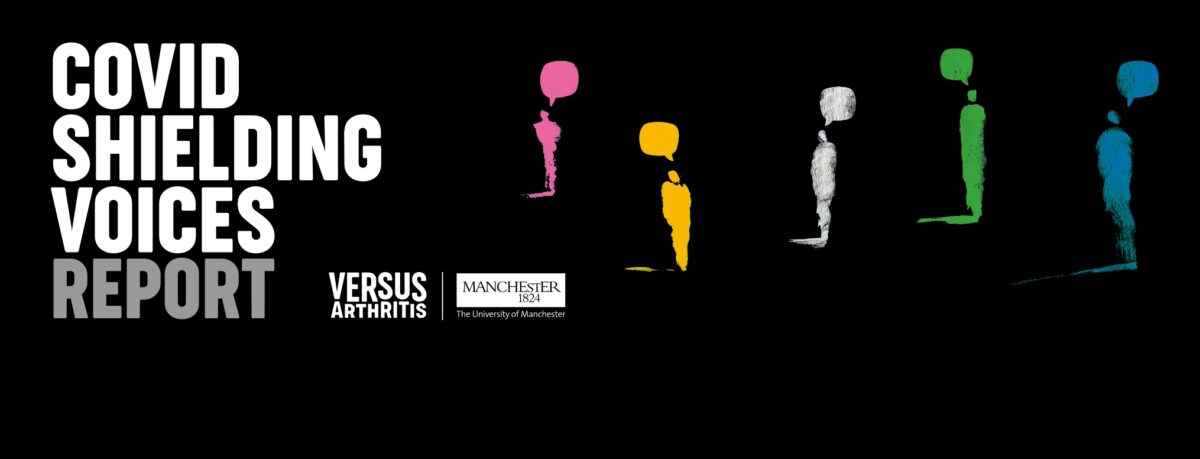In October 2023 the COVID Shielding Voices report was published. Funded by Versus Arthritis and conducted by the Centre for Epidemiology at the University of Manchester, it is a research study about people with autoimmune inflammatory conditions, such as rheumatoid arthritis, who shielded during the pandemic. The report has been shared with both the UK and Scottish COVID-19 inquiries.
The COVID Shielding Voices report captures the depth of people’s experiences of shielding during the pandemic and its long-lasting impact on them, their families, their mental health, and their working lives. The research participants come from across the four nations of the United Kingdom.
Please read a blog by researcher Lynn Laidlaw about the impact of shielding here: Co-producing COVID Shielding Voices: Lynn’s story (versusarthritis.org)
The report was co-produced with people with autoimmune arthritis and rheumatic conditions, such as rheumatoid arthritis, and captures the stories of people from across the UK who shielded during the pandemic. It is a rare example of research devised and conducted by patients and clinicians working together on an equal basis. The study used qualitative research methods such as interviews and focus groups and put co-production at its heart.
Read the report online here (versusarthritis.org) (opens in PDF format)

This report is a timely reminder to public health bodies of the impact COVID-19 had on those who had to shield. It serves as a useful tool for policymakers, public health officials, healthcare professionals and the wider health system to address how we can better serve everyone who shielded, and makes the following recommendations:
- The UK Health Security Agency and public health bodies across the UK with responsibility for pandemic preparedness should develop an impact assessment framework for shielding, based on findings of the report. This should guide future decision making and subsequent evaluation and be produced in consultation with those who have shielded and are likely to have to shield.
- The Department for Work and Pensions should ensure that there is employment protection and enforceable access to workplace adjustments for immunocompromised or immunosuppressed people, including the duty to consider working from home wherever possible.
- Future mental health plans released by government health departments across the UK need to address the mental health needs of people who were required to shield, with funding allocated to support those with unmet needs resulting from the pandemic.
- NHS bodies across the UK need to make greater provisions to ensure that people required to shield can access the essential health services they require. This includes an in-person offer, as well as online support.

